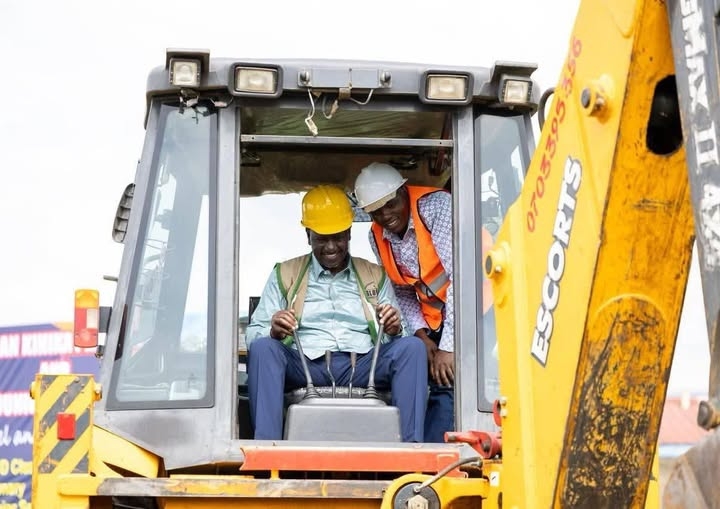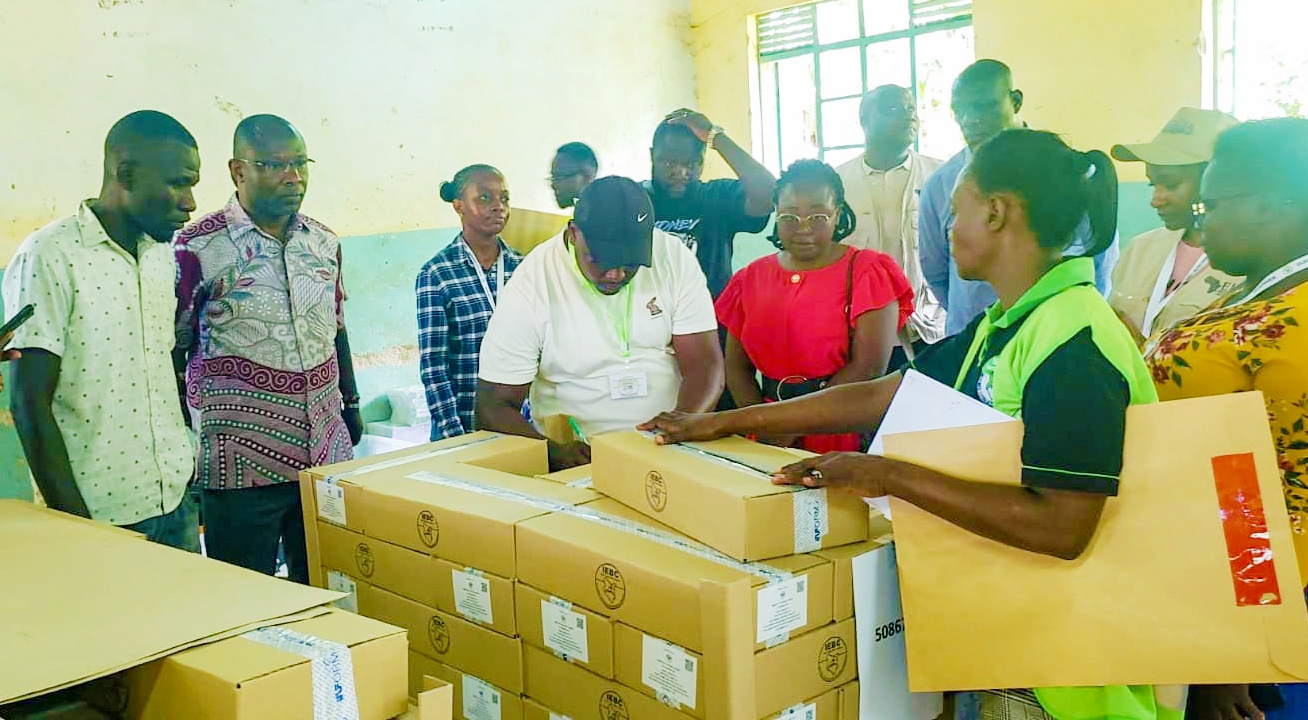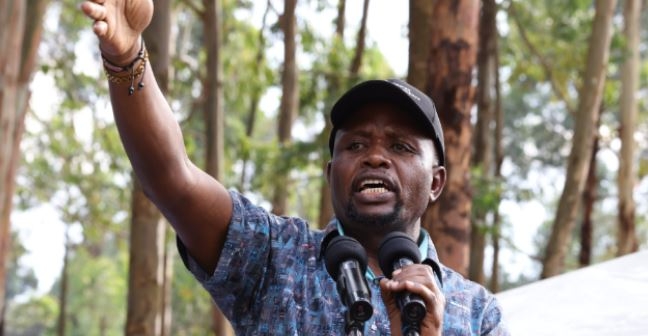As the National Treasury cabinet secretary Prof. Njuguna Ndung'u prepares to unveil the government's expenditure for the year starting July 1, Kenyans from all walks of life have shared their expectations with the Star.
Top on the wish list is the total scrapping of clauses adding tax pain to their already heavy shoulders in the Finance Bill, 2024.
Japhet Anduva, a former high school teacher and now smallholder farmer in Vihiga County is hoping for a lean fair tax year that will keep the cost of living down.
"Crop production is getting more expensive due to the downside spiral effects of a high tax regime. We are suffocating. We need some breath. Is that too much to ask? he said.
His domestic servants, Pamela Areso and Hudson Ogore agree, pleading with President William Ruto's government not to impose more taxes on key goods and services that define their daily lives.
"I heard that there is a proposal to raise the cost of sending and receiving money via mobile by five per cent. I pray that the Parliament rejects such plans in the upcoming budget,'' Areso said.
She adds that the limited wage she earns is no longer tenable, as the cost of living has soared to unimaginable heights.
"I used to earn Sh5,000 in 2011. Although the wage has more than doubled to Sh12,000, I can't feel the raise. My family's welfare has deteriorated. Any additional tax will send us to the street."
Her sentiments are echoed by Wilson Kimani, more than 400 kilometers away in Sigona, Kiambu county.
The 47-year-old father of three who operates a retail shop says his debt books are full and fears that the tough economy will soon run him out of business.
"I have had to stop lending to my loyal customers to protect the business. I have been forced to cancel some debts which have accumulated since 2020. A favorable tax regime is all I wish for in the coming financial year,'' Kimani said.
Dave Anam, a seasoned public service vehicle operator from Kapenguria to Eldoret was forced to cut his fleet by half late last year due to high operation costs.
He is now worried that he will be forced to pay at least Sh25,000 every year for the five vehicles stalled in Lodwar Town if the proposed motor vehicle tax of 2.5 per cent of the value of the vehicle sails through.
"These taxes will be the end of us. Last year, the high cost of fuel after affecting 16 per cent VAT saw me cut the fleet of matatus by five. I'm afraid that the proposed vehicle tax will send me back to my native Katilu village,'' Anam said.
He wants the government to slash taxes on basic goods and services to keep businesses in operation.
Late last week, the opinion poll conducted by Infotrak Research firm between May 25 and May 29 indicated that 77 per cent of Kenyans believe that the Finance Bill 2024 will not have a positive impact on the economy with a paltry 13 per cent of those interviewed arguing that it will have a positive impact.
An overwhelming 87 per cent of Kenyans are opposed to the introduction of a 16 per cent VAT on bread while 86 per cent are opposed to the introduction of VAT services on financial transactions such as M-PESA.
Other taxes in the Finance Bill that Kenyans rejected include the introduction tax of 2.5 per cent of the value of the motor vehicle (81 per cent), an additional levy on unfriendly products (83 per cent) and a proposal to exempt the disclosure of personal data by data controllers to the taxman (83 per cent).
Johvine Wanyingo, Infotrak Research Manager on Thursday said that out of the 1,700 respondents interviewed, only 54 per cent of them were aware of the existence of the Finance Bill 2024 with 46 per cent of them indicating they were not aware of the bill.
The Central Region leads at 62 per cent while Eastern at 41 per cent was the lowest in terms of awareness.
'We have also seen that it is during President William Ruto's administration that the number of Kenyans aware about the impact of the bill has increased particularly about the impact it has on their lives and the economy,” Wanyingo said.
As taxpayers present their wishes, the Parliamentary Budget Committee approved a Sh4 trillion budget to be presented by National Treasury CS Njuguna Ndung'u on June 13.
President William Ruto is relying heavily on the passage of proposed taxes to net close to Sh3 trillion in domestic revenue up from Sh2.64 trillion targetted by the Kenya Revenue Authority (KRA) in the current financial year.
It is no wonder that he is defending to levy of additional taxes on Kenyans, stating that it is part of a broader strategy to enhance the country’s revenue and reduce reliance on borrowing.
“The remedy to solve the debt burden is to pay taxes and become independent in developing the nation with our own money and even get to a point where instead of borrowing we will be lending to other nations. That is the trajectory we want to go,’ he said.
The head of state says he intends to raise the country’s average tax rate from the current 14 per cent to 16 per cent by the end of this year and aims for a rate of between 20 and 22 per cent by the end of his term in office.
While acknowledging the economic burden Kenyans will have to bear to achieve this target, Ruto believes that the long-term benefits will justify the increased taxes.
His party lieutenants have even dared manufacturers complaining of heavy taxation to relocate to either Uganda, Tanzania or Rwanda and other neighbouring East African Community countries and export their goods to Kenya duty-free.













